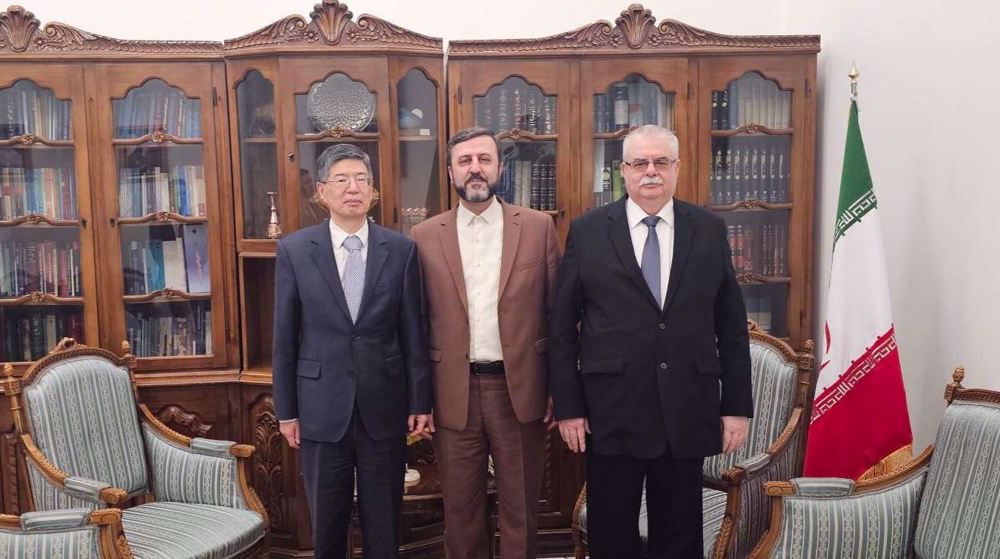China to use all necessary means to defend interests against US trade probe
China has warned that it will fully defend its interests and companies against a US trade investigation into Beijing’s alleged theft of American intellectual property.
“We are strongly dissatisfied with this unilateral and protectionist practice and will take all necessary measures to resolutely defend the legitimate rights and interests of the Chinese side and Chinese enterprises,” Gao Feng, Chinese Commerce Ministry spokesman, said at a regular news conference on Thursday.
The ministry had earlier censured Washington’s launch of the probe into China's alleged theft of US intellectual property, calling it “irresponsible.”
During the Thursday conference, Gao also said that Beijing’s support for overseas investment will not change but the oversight of deals will increase.
“We will further improve the overseas investment reporting management system,” he noted, adding that China would push forward legislation to govern foreign investment.
The probe, ordered by the White House on Friday, is aimed at enforcing a law which allows US President Donald Trump to unilaterally impose tariffs or other trade restrictions to protect US industries from “unfair trade practices of foreign countries.”
Some foreign-based corporations seeking a share of the vast Chinese market have complained that Beijing forces them to hand over technology as the price of doing business in China.
US administration officials have claimed that China’s “theft” of intellectual property could be worth as much as $600 billion. If China decides to retaliate against the US, the price of American goods will most likely increase and markets that were once open to the US may begin to shutter.
The claim came amid heightened tensions over North Korea in recent weeks and Trump's criticism of China’s position in face of Pyongyang’s development and tests of ballistic missiles and nuclear weapons.
Beijing, however, called on Washington not to politicize bilateral trade ties. It said its trade ties with the US and North Korea’s nuclear program are two unrelated issues and “should not be discussed together.”
Participation shrinks at Israeli arms expo in wake of Gaza genocide: Report
Venezuela calls on UN to pressure US for Maduro’s immediate release
Hamas: Israel seeks to break Palestinian abductees’ will through abuse
Former UK ambassador released on bail after arrest in Epstein-linked probe
Hamas condemns Israel’s arson attack on mosque in West Bank, calls for mobilization
Trump's top general warns of Iran aggression risks: reports
VIDEO | US ambassador’s remarks on Israel’s expansion spark outrage
VIDEO | ‘Protect the Right to Protest’ rally held outside London court










 This makes it easy to access the Press TV website
This makes it easy to access the Press TV website